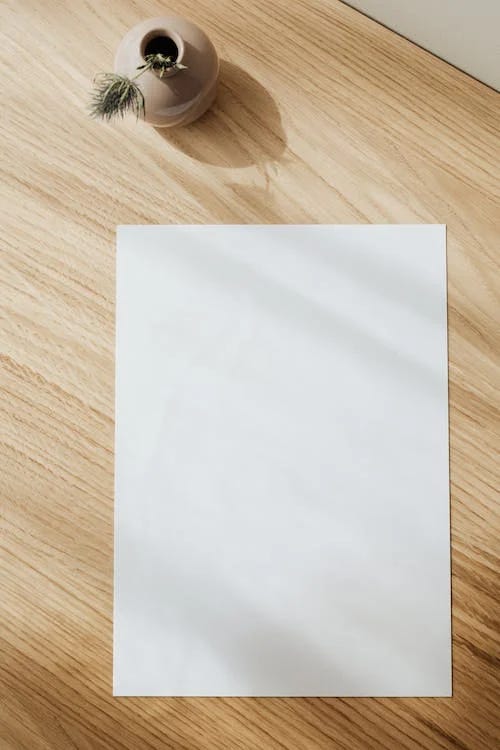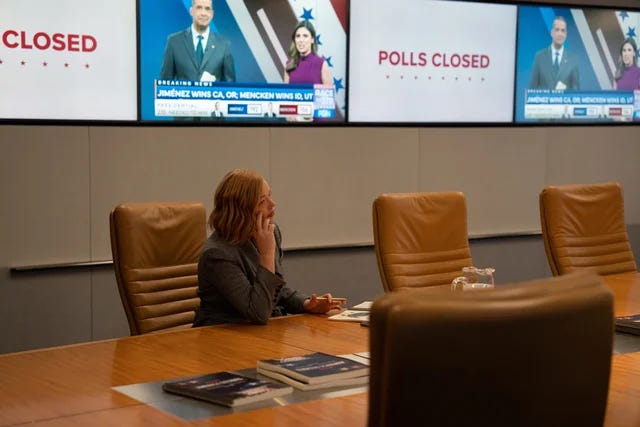
I once read that Leo Tolstoy, receiving the poet Rainer Maria Rilke as a guest, grew so exasperated with the poet’s interrogation of his own literary craft that he cried out, ‘Si vous voulez écrire, écrivez-donc!’
If you want to write, write.
There’s an lot of fuss made about the act of writing nowadays. The ‘Why I write’ piece is an editorial cliché; many Substacks take as their theme the process of writing itself. Writing in our time often takes on a very self-aware, self-examining attitude to the process and responsibility of writing, both schematizes its every practical aspect and mystifies the essence of the craft. Writing is presented as intractable, torturous and at times spiritual, a vocation not a job. I suspect this is a lot to do with money and specifically the lack of it. For sure, writing can be hard, but it’s striking how much easier the process becomes when there’s a fee and a deadline attached. Then it can be restored to its rightful place as a job amongst others.
Literary self-consciousness isn’t just a product of a lack of pay; it also seems to me an attempt to delay the acknowledgement of just how scarce the opportunities in writing are these days and how much more content is being produced than there are eyeballs to read it. If you can lose yourself in an almost holy view of the writer, and place every novel or script you write on an endless pilgrimage of revision – your work always just away from the state of perfection - you can delay acknowledging the reality that there is almost no career path as a professional writer now. That your work may not be getting published or produced not because it’s bad but because there’s so little money in the industry. It’s as if a kind of exaggerated self-consciousness about the act of writing is an attempt to insulate it from literature’s somewhat marginal status in the culture as a whole.
That marginal status manifests not just in preciousness about process but also a fear of addressing contentious subjects. A lot of contemporary fiction chafes from addressing politics. By that I don’t mean writers don’t take political stances; they do, but of a certain type of general identity politics and often with an element of ‘paying the piper’; what we see now is a writing world which is not political but politicized.
Clearly there are higher and lower status opinions for writers to hold on race, sexuality and gender, but these are wielded for writers’ personal advancement; they are sectorial politics, in the same way as a farmer knows the prices of biofuels. They have very little to do with any actual grounding and mooring in political theory. If such an author doing a promotional tour were asked to speak and conceive of things politically beyond those stances, rather than just hitting the approved rote phrases, they would flounder.
Take the recent discussions about trans rights. Literature and fiction is an ideal place to explore such an issue, as it is somewhere you can articulate multiple sides; in fiction, nobody has to be right. Instead the book world has engaged in controversies without content, deplatforming writers like the Scottish poet Jenny Lindsay for the act of condemning a Tweet by a trans rights activist urging ‘violent action’ against TERFs. Bottom lines mean a writer like J.K. Rowling is effectively impossible to cancel, but authors lower down the economic chain are certainly expendable. Again, the financial stakes being so small and careers being so fragile removes any additional incentive for writers to seriously engage.
Certainly, a publishing world with an increasing number of shibboleths about who can write what and who can hold which opinion isn’t going to be set up to produce novels which hit the issues of the day. The watchword is caution; hence the ever-strong market for stories of war and the past, where we can safely park awful things as ‘just the way things were back then’.
Yet even the experimental end of things has its own comfort mode. In prose, it expresses itself as sort of gently poetic, humourless writing, minutely focused on private lives. The novels are titled things like ‘On Earth We’re Briefly Gorgeous’ or ‘Ash Before Oak’1. They are auto-fictional, just a step over from the diaristic, and though there’s marvellous writing that goes on in what we might call the MFA milieu, it’s also often writing of a certain type – a sort of perfect sheen of pretty prose between the author and reality, away from the huckstering, boisterous world of public debates, hard problems, and event. Lots of sophisticated irony, very few jokes.
It is at this point that I might point to someone from an earlier age, someone like the recently departed Martin Amis and say, ‘Well, a straight white man today writing about sex like him wouldn’t get published today’, and for sure the comic novel is riotously out of fashion.
In fact, I view a lot of the pretty prose I criticize above as the logical dead-end of Amis’ valorization of style above all else. Style is a professional tool of the writer, but a lot of the writing I described above offers only style. The writer involved in their times and their world is deploying their style at the service of something. Amis himself, in fairness, increasingly attempted to do this by increasingly addressing historical subjects in his work.
Style above all else, a literary prose of ‘beauty’, is a dead-end for another reason; it suggests that the beauty of language, Flaubert’s ‘cracked kettle on which we tap crude rhythms for bears to dance to’, can ever compete with the beauty of the world – which makes sense as a stance for a prose and literature withdrawing from worldliness. Chekov said somewhere that the best description he’d read of the sea was a schoolboy who wrote in his notebook ‘The sea was very big’, and that assertion of first principles at the simplest level allows the reader to encounter the sea and its enormity almost as new.
It is the world that is beautiful. The power of art is in articulating our response to it, and the special power of literature derives from putting the right words in just the right order in a way which finally reasserts the wonder of reality. Literary language needs the humility to subordinate itself to the reality it describes.
You can write overwrought and aesthetically pleasing prose but I would say none of it could attain the potential beauty of a declarative sentence like ‘I was on the Isles of Scilly’. Perhaps you have been there and remember; perhaps you would like to go; perhaps you are confusing them with Sicily. Yet with a simple sentence I am offering you a range of potential association rather than trying to get you to admire my craft in language; a lack of space for the audience is why, in the end, virtuosity is always dull.
From what I read – and please accept that I am not an expert, for I read much more non-fiction than novels these days - it feels like the MFA crowd has drifted off into ‘writing as the goal of writing’. A writing which seems almost an attempt to preserve their small own creative world against the ‘problematic’ nature of human life.
Given writers are expected these days to caveat their belief in the right to debate by saying ‘I believe in free speech but with consequences’ - I mean actual writers say that! -, they are necessarily ill-equipped to stage debate. Sometimes it seems the modern literary novel is only really capable of dramatizing such dramatic ideological divides as those between the far-left and the centre-left. Beyond that lies an amorphous fascism which it is, by the way, in your professional interests to denounce.
I have come to the view that a lack of pluralism is the foundational sin of the cultural left. A lack of pluralism is the initial distorting principle which leads the cultural left to fail to understand both the world and their own opponents. Of course, every writer has their own political sympathies, but in writing fiction some part of you needs to be able to say ‘There are these people and these people, and they seem to believe these things’, without editorializing your own disapproval.
We’ve all had the experience of reading a writer’s brilliant fiction and then reading an interview with the writer and finding their views unremarkable and banal. The intelligence goes into the fiction, and profits from the intelligence of fiction itself, its inherent strength of being able to depict multiple views at once with none of them being wrong. If you don’t like the idea of sitting on the fence, I suggest doing something other than writing stories.

The fiction of our time seems to struggle with dramatizing ideological conflict. Indeed, it’s noticeable that even a brilliant drama like the just-finished ‘Succession’, about the highest stuff that’s being achieved in televisual entertainment these days, is at its weakest when it attempts to depict the political world. There, its satire becomes cruder and the careful mix of repulsion and sympathy veers fully to the former.
This is, I think, because its writers while brilliant stylists lack an ideological grounding; ‘Succession’ doesn’t have the sense of an authorial basis in political ideas displayed by say, Gilles Pontecorvo’s ‘Battle of Algiers’ or Costas Gravas’ ‘Z’.
In that ‘60s golden era of political film-making you get the sense of filmmakers secure in politics, steeped in it, in a way which doesn’t easily occur now. To make it clear, I absolutely think losing intellectually coherent political movies was a price worth paying for the fall of communism, and the alternatives which those filmmakers dreamed of turned out to be wrong.
The writers of ‘Succession’ can’t organize any ideological critique or even identification of their characters because they see the political world as having had all ideology and ideas drained out of it. Of it all just being ‘vibes’. I suspect none of the writers of the show could, as they so brilliantly fillet the world of the super rich, really tell you what they’d like to see in its stead. Across its entire 39 episodes, the whole series does not for one single moment suggest a genuine political alternative to the world it mocks. To be clear, as satire it has no responsibility to do so; just that insisting on a lack of ideological alternatives, across such a grand work, inevitably lends it a slight air of intellectual decadence.

So how can writers lose their self-consciousness?
Well, for one thing, don’t give up the day job. It should hopefully be in a field unrelated to writing. As long as you can somehow find time to write, and believe me I know it’s hard, a working life keeps you very much involved in the world of people and non-literary problems. It also gives you material.
I’d also also take a couple of unrelated areas – botany, pedestrianization, Iranian history, whatever really – and learn deeply about them. Conquer the literature on niche subjects with no ulterior motive as to what you will do with it. Of course, you still need to read lots of literature, in tandem with your own writing, to develop a prose style; you just need to read for facts and information too. It’s having knowledge in the locker, with a sense of an intellectual hinterland, that will mean that your work can touch on wider areas while still seeming grounded.
For this current phase of writing, soft lyrical, free of jokes, separated from debates and politically engaged only when expedient, well, that’s a literature produced by those who only literature know.
In the interests of full disclosure I should say that I have read neither of these books, and am not planning to.



